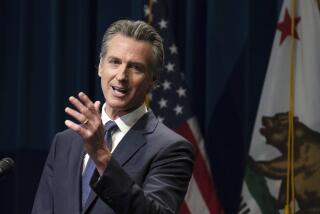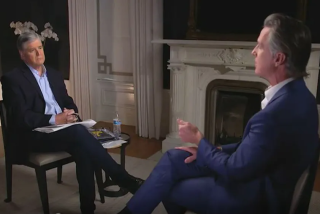Condoleezza Rice’s convention speech sparks political speculation
TAMPA, Fla. — The distinguished Republican panel included House Majority Leader Eric Cantor of Virginia, former Florida Gov. Jeb Bush and former George W. Bush domestic policy advisor Margaret Spellings. But the audience clapped for only one person at the beginning of a discussion on education policy Thursday: former Secretary of State Condoleezza Rice.
“By the way,” Jeb Bush said, prompting a second round of applause, “it was a spectacular speech.”
Every so often at a political convention, a rising star disappoints (say, Bill Clinton, who droned on too long in 1988) or an unknown becomes a star (Illinois state Sen. Barack Obama, at the Democratic National Convention in 2004).
But on Wednesday, Rice pulled off something more unusual. She reinvented herself in the imaginations of Republicans as a potential political powerhouse.
Many were moved to tears by the end of her speech when she told her rapt audience a compressed version of her story: “A little girl grows up in Jim Crow Birmingham, the segregated city of the South where her parents can’t take her to a movie theater or to a restaurant, but they have her absolutely convinced that even if she can’t have a hamburger at the Woolworth’s lunch counter, she could be president of the United States if she wanted to be. And she becomes the secretary of State.”
She had barely left the convention stage when an email from former California Republican Party Chairman Ron Nehring landed in inboxes: “Condi for California Governor? Ten Reasons to Seriously Consider It.”
Others, moved by her implausible life story, speculated that she could be a viable 2016 presidential candidate. “The next time Republicans are searching for a presidential candidate, rest assured,” wrote a Washington Post politics blogger, “Condoleezza Rice will be a part of that conversation.”
But just as quickly, political strategists from both parties dumped cold water on what they said was a bad case of California dreamin’.
“Republicans are so flat on their back in this state they are looking for any savior. You have to beware that kind of desperate effort to rebuild the party on the back of a political personality,” said Republican strategist Don Sipple, citing the decidedly mixed tenure of former Gov. Arnold Schwarzenegger.
Rice’s resume would present rich targets for adversaries from the right and the left.
She has a moderate stance on abortion, apostasy in today’s more conservative GOP. Democrats think of her as the Bush administration architect of two unpopular wars. (“That’s yesterday’s news,” snapped Jeb Bush in a brief interview after their panel discussion.)
But there is an even more powerful reason she probably won’t run: her oft-stated lack of desire.
“Could she be a candidate? Absolutely,” said Republican media consultant Bill Whalen of Stanford’s Hoover Institution. “There’s only one problem with every Condoleezza Rice scenario, and that’s that she has said a thousand different times that she is not interested in being a candidate.”
Democratic strategist Bill Carrick thought the power of her speech came partly from the fact that she is “outside the Republican orthodoxy,” which could make her an attractive general-election candidate in Democrat-dominated California.
But before she ever got that far, he said, “she’ll be primaried” — a political term of art for partisans demanding fealty from their own party’s candidates.
As Carrick noted, even though California had in Schwarzenegger a Republican governor who supported abortion rights, “Arnold never ran in a Republican primary. He would have never got through that field of land mines.” Schwarzenegger was elected in the 2003 recall that ousted Gov. Gray Davis.
In an interview with Bloomberg Television on Thursday, Rice said again she had no interest in running for office.
“I don’t have the DNA to run for office,” she said. “I love policy. I don’t really like politics. When you have had a chance to be the nation’s chief diplomat, that’s enough. I’m happy as a professor at Stanford.”
More to Read
Start your day right
Sign up for Essential California for news, features and recommendations from the L.A. Times and beyond in your inbox six days a week.
You may occasionally receive promotional content from the Los Angeles Times.







